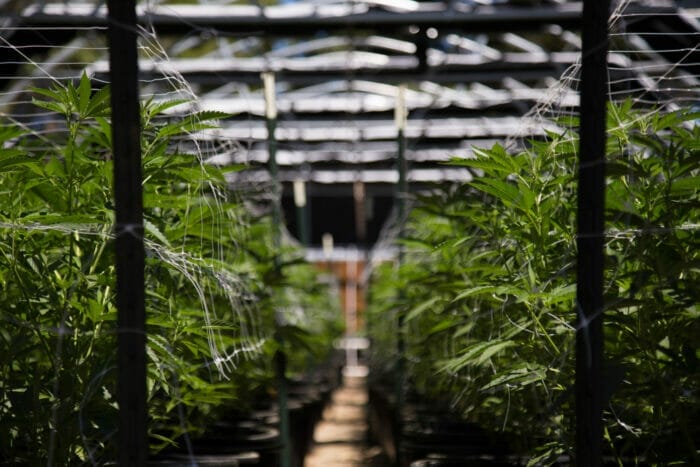
Thursday, via executive order, President Biden announced he would pardon thousands of people convicted of cannabis possession under federal law. The pardon only affects 6,500 Americans, and non-citizens were excluded from the order.
In a statement, Biden said, “My intent by this proclamation is to pardon only the offense of simple possession of marijuana in violation of Federal law or in violation of D.C. Code 48-904.01(d)(1), and not any other offenses related to marijuana or other controlled substances. No language herein shall be construed to pardon any person for any other offense, including possession of other controlled substances, whether committed prior, subsequent, or contemporaneous to the pardoned offense of simple possession of marijuana. This pardon does not apply to individuals who were non-citizens not lawfully present in the United States at the time of their offense.”
In addition to pardoning those convicted of simple possession of cannabis at the federal level, the president also charged governors with implementing similar policies in their states and tasked the Secretary of Health and Human Services along with the Attorney General to “expeditiously” review how cannabis is scheduled under federal law.
Currently, marijuana is considered a Schedule 1 substance. “This is the same schedule as for heroin and LSD, and even higher than the classification of fentanyl and methamphetamine – the drugs that are driving our overdose epidemic,” Biden said in a statement.
“Sending people to prison for possessing marijuana has upended too many lives and incarcerated people for conduct that many states no longer prohibit it. Criminal records for marijuana possession have also imposed needless barriers to employment, housing, and educational opportunities. And while white and Black and brown people use marijuana at similar rates, Black and brown people have been arrested, prosecuted, and convicted at disproportionate rates.”
The review process won’t necessarily mean that cannabis becomes federally legal, it could just move cannabis to a lower category on the Controlled Substances Act. While rescheduling marijuana would open up the opportunity for federal research that could validate the plant’s medicinal properties, and ultimately lead to decriminalization, cannabis advocates say that it could, at the same time, add complexity to medical and recreational cannabis programs in states where it’s legal.
Meanwhile, immigration advocates had mixed responses to today’s announcement with some arguing that the exclusion of undocumented immigrants in the pardon, coupled with the continued prohibition of marijuana means that non-citizens can still be detained or deported for possession of the drug. Some called on Congress to make immigration laws that are reflective of evolving cannabis laws at the state level. Others waffled on the actual impact of the president’s announcement as it relates to immigration.
For now, cannabis possession is a deportable offense. If a non-citizen tells an immigration officer they have used marijuana, sold it, or even possessed it (even in states where it is legal) can be denied entry in the U.S., deemed inadmissible, have their citizenship applications denied, and can ultimately be deported. In some cases, green card holders can lose their lawful permanent resident status and be deported for a cannabis-related conviction. The conviction makes an LPR deportable unless it was an isolated, one-time incident where cannabis was limited to 30 grams for personal use only. From 2003 to August 2018, more than 45,000 people were deported nationwide for possession of marijuana, according to the Transactional Records Access Clearinghouse (TRAC) at Syracuse University.
Moreover, investing in the cannabis industry is also prohibited for lawful permanent residents, though they can purchase shares in American companies and trade on the U.S. stock exchange. This rule is driven by the controlled substance law, which assumes that any support for a cannabis business is aiding and abetting the trafficking of the drug.
All told, unless cannabis is decriminalized it will continue to be an issue for non-citizens in the U.S. Many hope today’s announcement is the first step toward decriminalization of the drug. Until this happens, immigrants should:
- Stay away from cannabis until you are a U.S. citizen
- If you need cannabis for medicinal reasons, talk to a lawyer first
- Do not carry cannabis, or a medical card, with you
- If you have used cannabis or worked in the industry, talk to a lawyer before applying for citizenship or adjusting your immigration status